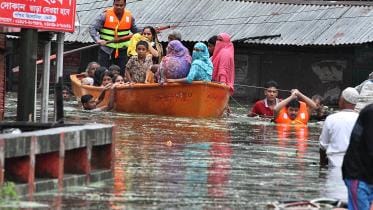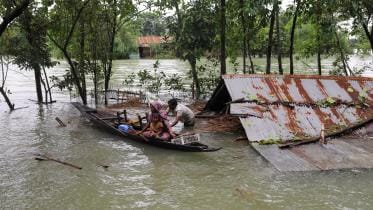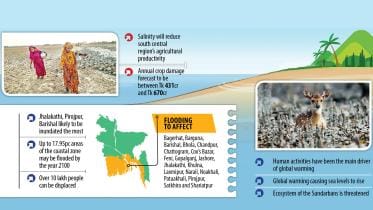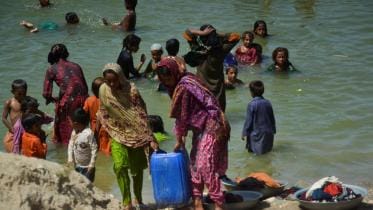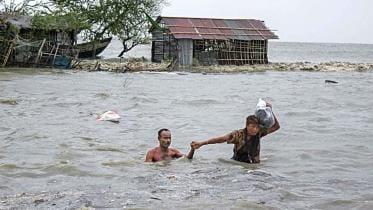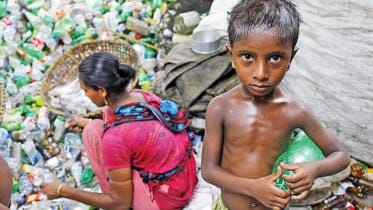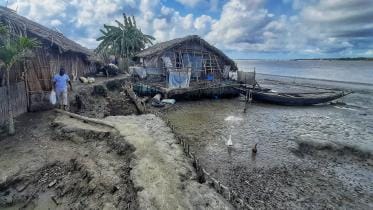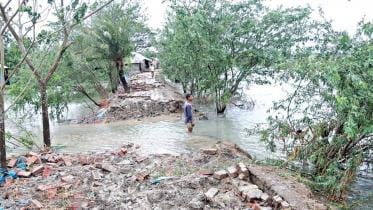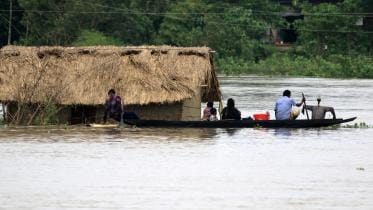Climate Change Bangladesh
Why is the ICJ silent about the gender aspect of climate justice?
The court does not specify how reparations in case of litigations should meet the distinct needs of women and marginalised communities.
13 August 2025, 05:00 AM
Bangladesh’s current heat emergency and the roadmap to COP30
As the climate crisis escalates, Bangladesh faces a critical challenge.
3 May 2025, 07:00 AM
Takeaways from COP29
The climate clock is ticking faster than ever for countries like Bangladesh.
29 November 2024, 02:00 AM
Bangladesh should endorse the fossil fuel non-proliferation treaty
Being a low-lying delta, we are highly susceptible to sea-level rise, which is causing coastal erosion, displacement of communities, and saltwater intrusion into agricultural lands.
15 November 2024, 07:00 AM
COP29 and the stakes for Bangladesh
The distribution of benefits is unequal between buyers and sellers.
2 November 2024, 07:00 AM
Sea-level rise in Bangladesh: Faster than global average
Bangladesh is experiencing a faster sea-level rise than the global average of 3.42mm a year, which will impact food production and livelihoods even more than previously thought, government studies have found.
18 May 2024, 18:00 PM
Why the lack of data on how climate change affects public health?
There's a prevailing tendency to attribute common issues to climate-induced factors, without reliable data to back up the claims.
4 March 2024, 03:00 AM
Rising Sea Levels: 9 lakh in south may be displaced by 2050
Sea level rise may displace almost nine lakh people from southern Bangladesh by 2050, because their homes and livelihood will be jeopardised.
11 February 2024, 18:00 PM
Rising sea levels and the lessons to learn
A thorough and strategic approach is required to defend against the recurrent floods and climatic disasters Bangladesh faces.
27 August 2023, 01:30 AM
A window of opportunity to phase out fossil fuels
We cannot continue to allow wealthy countries to externalise the damage of their pollution spree.
31 March 2023, 03:00 AM
Global loss and damage initiative launched in Dhaka
This new initiative aims to support both governments and civil societies in the vulnerable countries to enhance their knowledge of and responses to the adverse impacts of human-induced climate change.
8 March 2023, 15:00 PM
Taxing air travel could fund climate victims
Public financing from developed countries will never be sufficient.
14 February 2023, 01:00 AM
The whos and hows of allocating loss and damage funds
The estimates of the total losses and damages run into many trillions of US dollars.
17 January 2023, 18:08 PM
Can parametric insurance be a tool for climate resilience?
There has been a wave of climate change policies in recent years, but unfortunately, implementation efforts have remained fragmented.
16 January 2023, 15:00 PM
Leaving no one behind
Poverty rates in recent years have demonstrated an impressive steady improvement in Bangladesh.
2 January 2023, 09:56 AM
How does our new National Adaptation Plan consider nature?
On November 2, the government made the long-awaited National Adaptation Plan of Bangladesh (2023-2050) public.
16 November 2022, 15:00 PM
Bangladesh must advocate for legal migration opportunities for the climate-vulnerable
The young population in the coastal villages want to develop their skills and knowledge and advance their career.
12 November 2022, 18:32 PM
Forget COP27, the youth should hold an 'Accountability COP'
There is a great need for an annual “Accountability COP” to hold those who have pledged to act against climate change to account.
2 November 2022, 17:36 PM
Climate loss and damage are clearly visible in southwest Bangladesh
People living in climate-vulnerable areas urgently need government support
9 September 2022, 18:24 PM
Ensuring climate justice for the urban poor
It is estimated that Bangladesh may see 13 million internal climate migrants by 2050.
3 September 2022, 11:43 AM


